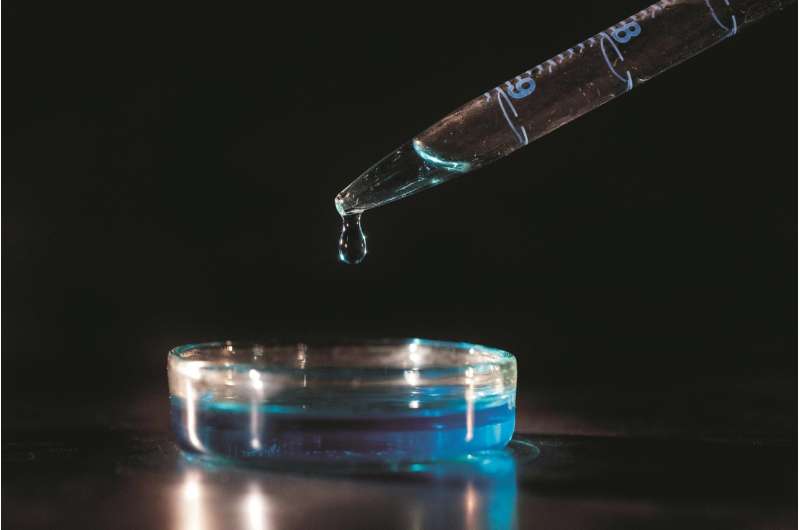Researchers study consumer acceptance of in-vitro meat production

Factory farming and industry scandals have caused a reduction in meat consumption by Germans. Instead, consumption of vegetarian sausages and soybean steaks is increasing. Animal muscular tissue grown in the laboratory promises actual meat without the need to raise and kill animals. Researchers of Karlsruhe Institute of Technology (KIT) have studied whether so-called in-vitro meat is a viable alternative.
Production of in-vitro meat is complex and possible only in small amounts. However, Inge Böhm of KIT's Institute for Technology Assessment and Systems Analysis (ITAS) says, "In the future, in-vitro meat might help solve problems caused by meat consumption in view of growing global population, climate change, and animal protection. By culturing animal muscle stem cells, it might no longer be necessary to grow and kill animals with a high resource expenditure."
Currently available meat substitutes, such as vegetarian reproductions of turkey breast, pork schnitzel or meat balls made of soybeans or seitan, are controversial. While an increasing number of part-time vegetarians, who want to eat less meat for ethical reasons, consume pseudo-meat made of compressed soybeans, peas, and carrots, critics warn that these highly processed artificial imitations might even increase alienation between man and animal. In spite of recent technical progress, there are still hurdles to meat production by culturing animal muscle stem cells, such as the lack of a non-animal nutrient solution.
Using interviews and participative methods (focus groups, citizens' jury), ITAS scientists have now studied consumer response to lab-grown meat cultured from animal stem cells. The researchers interviewed experts from science and the food service industry, as well as representatives of environmental and animal rights organizations, and organic and conventional farmers associations. Citizens were also given the opportunity to participate.
According to the study, most respondents consider in-vitro meat one of many alternatives to conventional meat production. At the same time, in-vitro meat encounters resistance from those who think that future food supply has to be associated with reduced meat consumption and an ecological reorganization of agriculture. Arguments against in-vitro meat are the alienation between man and animals, and the risk of a monopolization of in-vitro meat production.
"The large majority of society would like politics to develop strategies to reduce meat consumption, to push sustainable reorganization of agriculture, and to support research into and development of plant-based alternatives," Böhm says.
Provided by Karlsruhe Institute of Technology



















